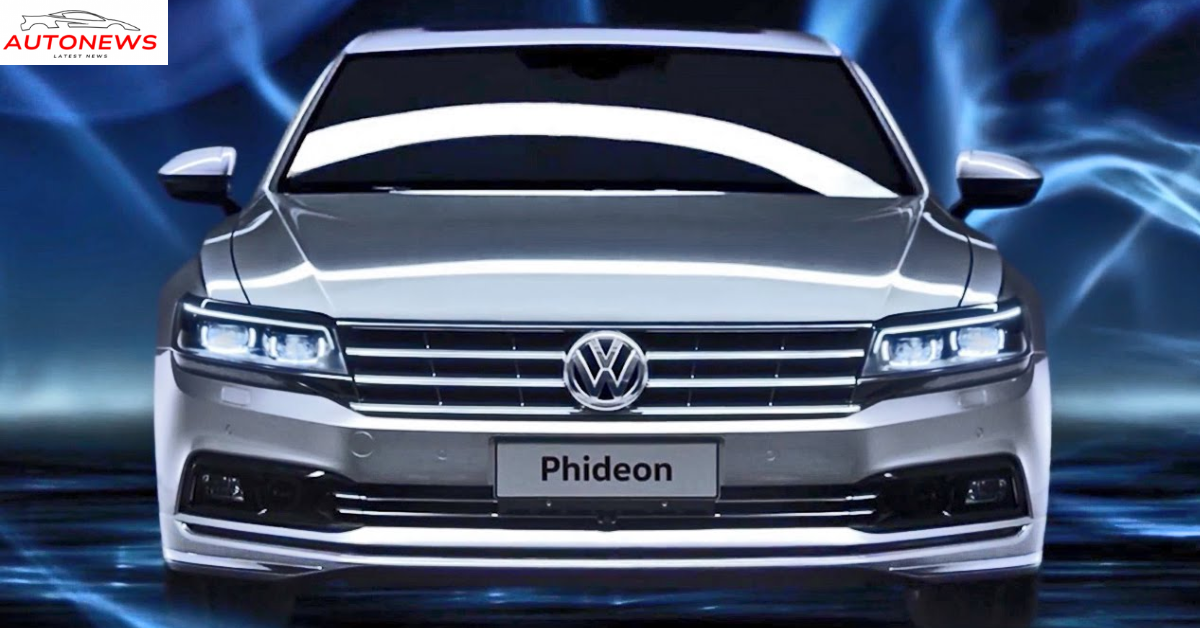In the Automotive world, Volkswagen is a name synonymous with reliability, practicality, and innovative engineering. Known globally for models like the Golf, Passat, and Tiguan, Volkswagen has historically occupied a strong position in the mid-range market. But when it comes to the luxury sedan category, the brand took a bold step with the Volkswagen Phideon—a premium model that few outside China may have heard of, but one that quietly showcases VW’s top-tier design and engineering.
A Flagship Built for the East
The Volkswagen Phideon made its debut in 2016 at the Geneva Motor Show, but interestingly, it was never intended for the global market. Instead, the Phideon was developed specifically for China, the world’s largest automotive market, where luxury sedans are in high demand—especially for chauffeur-driven executives. As such, it was designed to meet the tastes and expectations of Chinese consumers, with a focus on comfort, technology, and prestige.
The car is built on the Volkswagen Group’s MLB platform, which it shares with high-end models like the Audi A6 and Porsche Macan. This gives the Phideon a solid foundation, offering not only superb ride quality but also the refinement expected in a luxury sedan.
Design and Exterior
On the outside, the Volkswagen Phideon has a presence that is both commanding and understated. It doesn’t shout luxury—it whispers it. The exterior design language is sleek and minimalist, in line with VW’s brand identity, but it’s scaled up to give the car a more prestigious look. A wide grille, sharp LED headlights, and elegant body lines all contribute to its executive appearance.
Measuring just over 5 meters in length, the Phideon slots above the Passat and Arteon in VW’s lineup. Its proportions are balanced and classic—long hood, short front overhang, and a sloping rear that gives it a coupe-like silhouette.
Interior Excellence
Where the Phideon truly stands out is its interior. Designed to compete with the likes of the Audi A6L and BMW 5 Series Li (long-wheelbase variants popular in China), the cabin is filled with premium materials, advanced technology, and thoughtful touches.
Leather upholstery, wood veneer trim, ambient lighting, and a panoramic sunroof create a luxurious environment. Rear-seat comfort is particularly impressive, with ample legroom, seat heating and ventilation, and even massage functions available in higher trims. It’s clear that VW designed the back seats with VIP passengers in mind.
The dashboard features a digital instrument cluster and a large infotainment screen with VW’s advanced MIB system. While not as flashy as Mercedes-Benz’s MBUX system, it’s responsive, easy to use, and integrates well with smartphones via Apple CarPlay and Android Auto.
Performance and Powertrain
Under the hood, the Phideon has a range of powertrains, from a 2.0-liter TSI turbocharged four-cylinder to a more powerful 3.0-liter V6 TSI engine. The V6 variant, coupled with VW’s 4MOTION all-wheel drive system, delivers a refined and powerful driving experience. It produces around 295 horsepower and can accelerate from 0 to 100 km/h in just under 6 seconds—quick for a vehicle of its size and class.
There’s also a plug-in hybrid variant—the Phideon GTE—which blends a 2.0-liter turbo engine with an electric motor, offering short-range electric-only driving and reduced emissions. This makes the Phideon an appealing option for buyers conscious about fuel efficiency and environmental impact.
Technology and Safety
As a premium vehicle, the Phideon is packed with advanced driver assistance systems (ADAS), including adaptive cruise control, lane-keeping assist, autonomous emergency braking, and blind-spot monitoring. It also features a heads-up display, 360-degree camera, and automatic parking—features expected at this price point.
Volkswagen also equipped the Phideon with dynamic chassis control and air suspension in higher trims, ensuring a smooth and adjustable ride that adapts to driving conditions and passenger preferences.
Market Position and Legacy
Despite its qualities, the Phideon remains a relatively unknown model outside China. VW chose to keep it exclusive to the Chinese market, where it serves as a flagship model for customers who prefer a Volkswagen badge over the flashier German luxury marques. It fills the space once occupied by the ill-fated Volkswagen Phaeton, which was discontinued globally due to slow sales.
Interestingly, while the Phaeton struggled in the global luxury market, the Phideon has found a niche in China by offering luxury and comfort without the ostentation. It appeals to buyers who appreciate subtlety, engineering excellence, and value.
Final Thoughts
The Volkswagen Phideon is a reminder that luxury doesn’t always have to shout to be heard. It delivers on all fronts—comfort, technology, performance, and design—without relying on the status-driven flash of its competitors. Though it may not wear an Audi, BMW, or Mercedes badge, it quietly earns its place among them, especially in a market that values substance over show.

